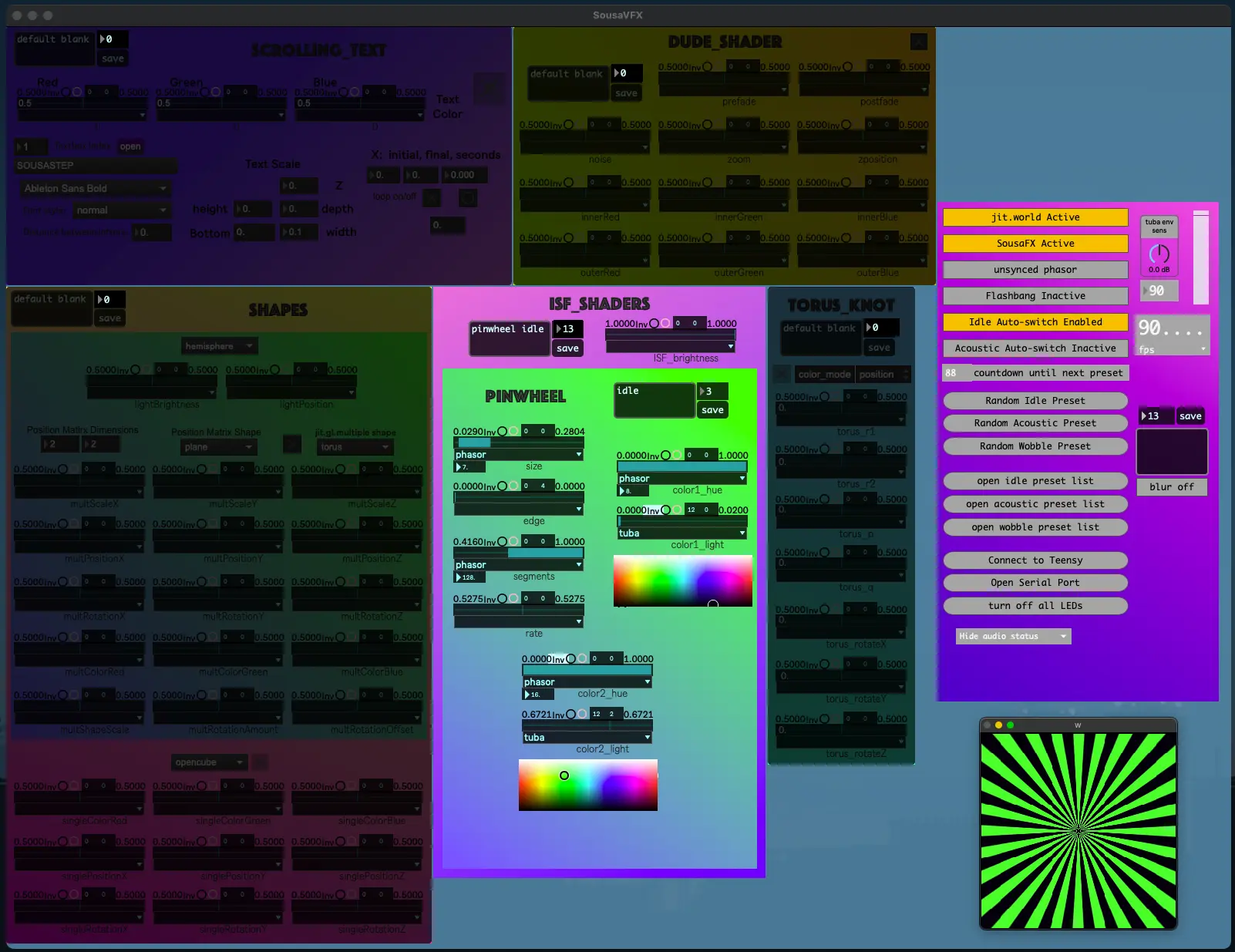SousaVFX
SousaFX integrates with SousaVFX via five audio-rate control signals to provide visual effects for LED sousaphone bells. SousaVFX currently must run on the same computer as SousaFX, but can be modified to run on a separate computer.
Note
Other VFX apps such as VDMX, Resolume, or Touchdesigner may also play nicely with SousaFX’s audio-rate control signals.

SousaVFX has 5 types of VFX:
Scrolling text, which I don’t use much anymore because people can’t tell it’s text unless I tell them that it’s text.
That Primitive Action “club-ready” shader by Dude837.
A Torus Knot geometry example, ported from TorusKnotGeometry by Cycling74.
Single & multiple basic shapes with nifty rotational parameters, from a Max tutorial that I forget the source of.
ISF shaders, of which there are several:
Startup
SousaVFX can auto-start via SousaFX’s Startup Preferences, or by opening
~/Documents/Max 8/Projects/sousastep/SousaVFX/SousaVFX.maxprojIf SousaVFX is running on the same computer as SousaFX, then the following Audio IO may be set to Off.
Main 1-bar Phasor
Phasor offset rate
High Freq Mod Mixed
Low Amp Mod Mixed
tuba + timefx env
If SousaVFX and SousaFX are running on different computers, then SousaFX’s aformentioned audio outputs must be routed to SousaVFX’s audio inputs of the same name, and SousaPlayback’s “perc 1” track’s “Ext. Audio Effect” device’s “Audio To” output must be routed to SousaVFX’s “Audio IO” window’s “Kick & Snare L/R” input.